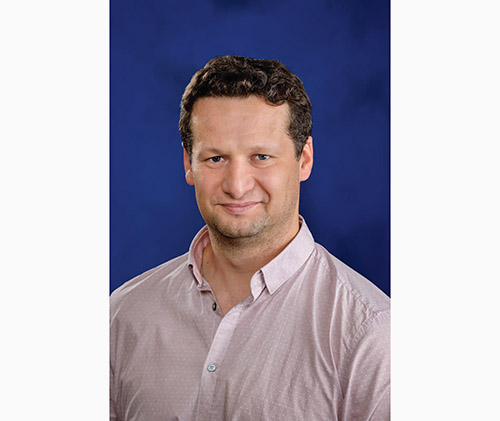

When Dmitry Shimelfarb was an eighth grader in Minsk, Belarus, he got the shock of his young life. He took the country’s standard psychological test to determine a child’s future, and was told he would not make the cut for university. Despite his good grades, he was urged to apply to trade school. Why? Only 1.5 percent of Jewish students were admitted. Rather than face a bleak path in life, he became involved with a Zionist youth group and immigrated to Israel.
Fast forward to today. Shimelfarb lives in Montclair, New Jersey, with his wife and children, and is the executive director of the Israel Education Scholarship Foundation (ISEF), the organization that helped him take a very different educational journey. ISEF provides scholarship aid and mentoring for disadvantaged youth in Israel. Originally started to help the Sephardim, ISEF now gives scholarships to students from a cross section of Israel—Russian, Ethiopian, secular, religious—young men and women who have the brains but not the money to get a good education.
“I was in boarding school, having trouble with Hebrew,” Shimelfarb recalled. “At some point, we got assigned an ISEF student from Tel Aviv University who volunteered with kids. I told him I couldn’t plan for the future because I wasn’t university material. He laughed!” With his tutor’s guidance and encouragement, Shimelfarb proved to himself and the world that he could succeed. “ISEF makes students believe they can do it,” he said.
Shimelfarb earned a B.A. from Hebrew University, an M.B.A. in public policy leadership from the Interdisciplinary Center (IDC) in Herzliya and a master’s in negotiation and conflict resolution from Columbia University in New York. He went on to serve as the executive director of the JPF Foundation (an organization for Russian Jewish youth) and as vice president of Israel and global philanthropy for the Jewish Agency for Israel. Prime Minister Benjamin Netanyahu appointed him to serve as spokesman and press secretary for the Likud Party; he was the first non-native Hebrew speaker to hold this position.
Like Shimelfarb, ISEF’s distinguished alumni in banking, law, academia and medicine are now leaders in their fields. Dr. Yitzchak Bitton was an ISEF scholar from 2001 to 2018. Married, with two children, he is an associate professor of cardiology and cardiac electrophysiology at Hadassah Medical Center in Jerusalem. One of four siblings, he grew up in Lod, a poor city in central Israel. His father, a high school graduate, was disabled by a terror attack during his IDF service. His mother, also disabled, dropped out of school after sixth grade.
Dr. Meital Simhi was an ISEF student from 2004 to 2018, earning a B.A., M.A. and Ph.D. in social work from Ben Gurion University in the Negev. Married with five children, Dr. Simhi is a postdoctoral fellow in social work at Brandeis University. Her father was a Moroccan-born construction worker who passed away 20 years ago. Her mother works as a cleaner. She has a particular interest in helping women in the religious and charedi communities gain access to better health care and higher education for themselves and their children.
ISEF helped Dr. Avi Levy earn a B.A., M.Sc. and Ph.D at Ben Gurion University and a post-doctoral fellowship at Ben Gurion’s medical school. He was a science teacher and high school principal before becoming the co-founder and past president of Hemdat Hadarom College, the only religious teachers college in the country. Now married and the father of eight, Dr. Levy was born in Morocco and made aliyah in 1963. He grew up with nine siblings in an immigrant tent camp in Jerusalem.
Israel is a country divided between the haves and have nots, Shimelfarb explained. In the early days of the state, most money went to schools in the Tel Aviv area, leaving others underfunded, and the inequality has continued. Students from the hinterland with few resources have little chance of upward mobility. They do not have access to the private, competitive pre-army academies costing 20-25,000 shekels a year that prepare students not only for success in the army but university and beyond. The system has led to large social gaps, a huge challenge for the country.
The problem is not just personal. Israel needs all the brainpower it can get. “There are strategic consequences for Israel’s well-being. Israel’s human capital will be depleted in five to 10 years and internally there’s not enough talent to replace it,” Shimelfarb said. “Israel’s status as the ‘start-up nation’ is largely due to talented engineers who came from the Soviet Union. They’re retiring now and must be replaced.”
Shimelfarb’s challenge as executive director of ISEF is developing strategic plans to grow the donor base, integrate alumni into leadership roles and meet Israel’s needs by identifying and funding students with great potential.
“There are many ways to help Israel,” Shimelfarb notes. “If you want your dollar to go a long way, invest in Israel’s youth. Your dollars will see an impact. Our students stay in touch and share their success.”
By Bracha Schwartz













